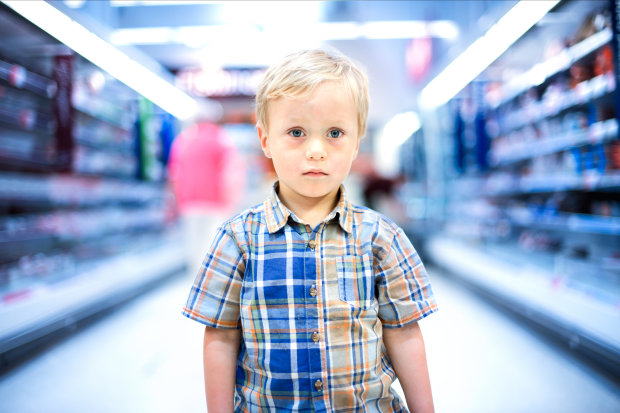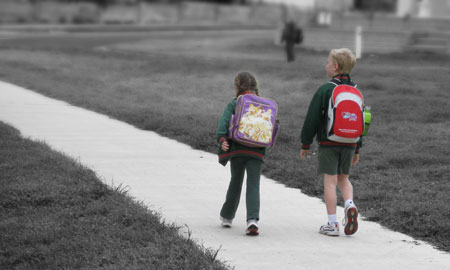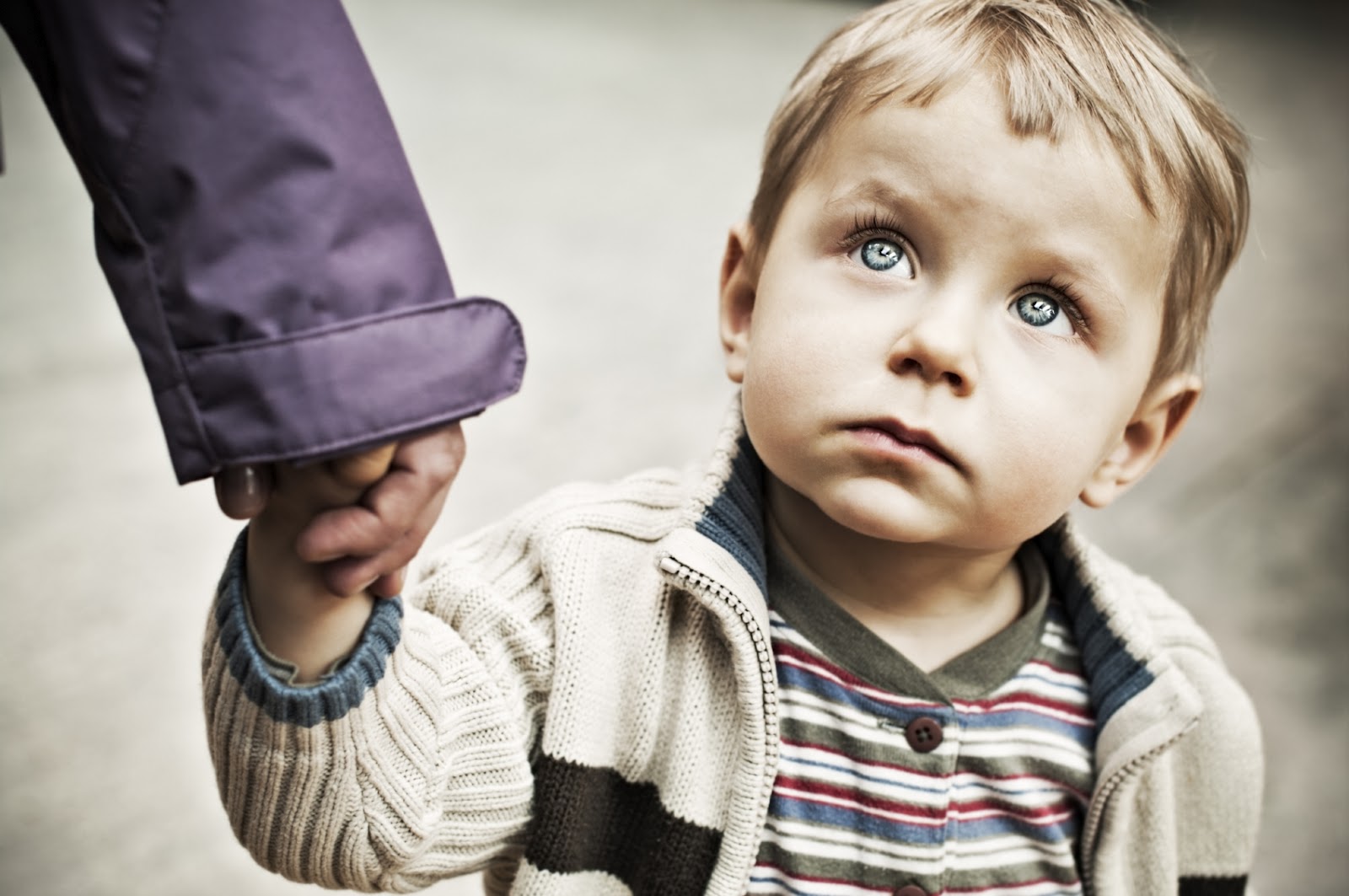The post Hidden iPhone app that could save your life appeared first on .
]]>Last fall, Apple created a new feature called the “Medical ID,” which it keeps hidden in the iOS health app. When I talk with people about their phones, it’s often the feature most people have never heard of, but also the one that could save your life.
On your medical ID, you can fill out as much information as you want a medical provider (or a snooping colleague) to know, including allergies and your emergency contacts.
Disclaimer: I’m not a medical professional and those who have serious health conditions that generally require a medical bracelet or other identification probably shouldn’t rely on their cell phone to communicate that information.
That being said, filling out your medical ID to at least make your emergency contact accessible without needing to enter a passcode is important.
Click here for full article and screen shots.
The post Hidden iPhone app that could save your life appeared first on .
]]>The post Safe Shopping appeared first on .
]]>
NECESSARY PRECAUTIONS:
If at all possible, leave your child with family, friends, or a trusted babysitter.
SHOULD YOU TAKE YOUR CHILD WITH YOU:
Upon arrival, identify with your child, areas or people he can go to for help.
Keep your child in sight at all times.
Do not leave him alone in public washrooms. You should wait by the door for older children.
Use the carriages available at the information booth for toddlers.
Never leave your child alone in the car, not even for a few minutes.
Make a mental note of what he is wearing.
Regularly review with him what he should do if he gets separated from you.
YOUR CHILD SHOULD KNOW…
To stay close to where he became separated from you;
To go to the nearest store or booth and ask the store clerk for help (the person behind the counter or cash register);
To never leave the area to look for you and never return to the car;
To never leave the shopping centre without you;
You would never leave without him.
WHAT TO DO IF YOU LOSE SIGHT OF YOUR CHILD:
Remain calm.
Check your immediate surroundings.
Go to the information booth and tell the clerk that you have lost your child and need help. That person will then enlist the help of the security personnel.
The post Safe Shopping appeared first on .
]]>The post Protect your Children appeared first on .
]]>Information for Parents:

- Stress to your child that he or she should feel comfortable telling you anything, especially if it involves another adult. If your child does not feel comfortable being completely honest with you, then you should find another trusted adult your child can talk to in confidence.
- Educate your children that it is inappropriate for adults to engage children in sexual activity and to let you know immediately if they have been solicited.
- Make an effort to know the people with whom your child is spending time with online and offline.
- Protect your children from sexual assault. Teach your children about their bodies, give them the correct language to use when describing their private parts. Emphasize that those parts are special and should not be touched by anyone else.
- Get to know your children’s friends and be clear with your children about the places and homes they may or may not visit. Make sure you know where each of your children is at all times.
- Make it a rule that your children check in with you when they arrive at or depart from a particular location and when there is any change in plans. You should also let them know when YOU are running late or if your plans have changed so that they can see the rule is for safety purposes and not being used just to “check up” on them.
- Never leave children unattended in a vehicle, whether it is running or not. Children should never be left unsupervised or allowed to spend time alone in cars, considering the potential dangers to their safety outweigh any perceived convenience.
- Instruct children NEVER to hitch-hike, approach a stranger’s car or engage in a conversation with anyone in a car who they do not know or trust, or go anywhere without getting your permission first.
- Be involved in all your children’s activities. As an active parent, you will have a better opportunity to observe how the adults in charge of such activities interact with your children. Take it up with the sponsoring organization, if f you are concerned about anyone’s behaviour.
- Teach your children that they have the right to say “NO” to any unwelcome, uncomfortable, or confusing behaviour, especially touching. Teach them to tell you immediately if this happens.
- Reassure them that you are there to help them and it is okay to tell you anything even if it means they are “ratting” on someone.
- Listen to your children and trust their intuition. Pay attention if they tell you that they do not want to be with someone or go somewhere. This may be an indication of more than a personality conflict or lack of interest in an event. Take notice when someone shows your children a great deal of attention or begins giving them gifts. Take the time to talk to your children about this person and find out why the person is acting this way.
- Be sensitive to any changes in your children’s behaviour or attitude. Encourage open communication and learn how to be an active listener. Look and listen for small cues that something may be troubling your children, because they are not always comfortable disclosing disturbing events or feelings. This may be because they are concerned about your reaction to their problems. If your children do confide problems to you, strive to remain calm, non-critical, and non-judgmental. Listen compassionately to their concern and work with them to get the help they need to resolve the problem.
- Be sure to screen babysitters and caregivers. Many places now have public registries that allow parents to screen individuals for prior criminal records and sex offences. Check references with other families who have used the caregiver or babysitter. Once you have chosen the caregiver, drop in unexpectedly to see how your children are doing. Ask your children how the experience with the caregiver was, and listen carefully to their responses. If children are too young to talk about the details, consider installing a hidden web cam in your home.
- Practice basic child safety skills with your children. Make a trip to the mall or a park a lesson in which your children can practice checking with you by using pay phones, going to the restroom with a friend, or locating the adults who can help if they need assistance. Remember that allowing your children to wear clothing or carry items in public on which their name is displayed can bring about unwelcome attention from inappropriate people who may be looking for a way to start a conversation with your children.
- Remember that there is no substitute for your attention and supervision. Being available and taking time to really know and listen to your children helps build feelings of safety and security. Also remember that in the vast majority of cases of up to 90%, children are molested by someone they know. Your efforts at keeping your child safe must be informed by this fact and not focused exclusively on the danger that strangers may present.
Information for Teenagers:

- Adolescence is an uncertain time for children, and one in which they are most at risk for sexual behaviour and assault. Prepare for the possibility that as adolescents, they may engage in some risk-taking behavior and try to minimize that risk by educating them about the danger of sexual assault by friends, acquaintances, authority figures or others.
- Encourage your teenager to trust their instincts and if a situation makes them uneasy, especially when alone, to get out of it immediately. This can be especially difficult for both children and adults who have been socialized to be polite.
- Stress to them that they can always talk to you about anything, even if they have been hurt or are scared, regardless of the circumstances surrounding the incident.
- Do not let them talk themselves out of feeling uncomfortable with someone simply because he or she is an acquaintance or a friend of a friend — most sexual abusers are someone the victim knows.
- Teach them to be wary of friends or dates who test their boundaries by making unwanted physical advances or ignore or minimize your protests and other signs that you do not like their behavior.
How to Improve Overall Safety:
- Talk openly about the sexual assault of adults and children, men, women, boys, and girls.
- Understand the issues involved in sexual assault. Know the statistics.
- Assume preventing sexual assault is everyone’s responsibility.
- Talk to your children about personal safety issues as they relate to child sexual abuse. Do this when you talk to your children about bike safety, crossing the street, or talking to strangers. It is, in many ways, just another personal safety rule about which children need to be aware.
- Increase your knowledge about risk reduction measures you can take to protect yourself.
- Invite your local law enforcement, probation/ parole department, rape crisis center, or child abuse prevention organization to a neighborhood discussion group to learn about the issue and to process people’s emotions.
- Get to know your neighbours.
- Organize neighbourhood block watches, if desired by your neighbors.
- Do not wait until you are informed that a sex offender is living nearby to begin educating yourself and family on issues of sexual assault.
- Find out what the statistics on child sexual abuse, adult sexual assault, offender arrest, and incarceration are in your community.
Beware of the media’s ability to sensationalize the most horrific of stories concerning the sexual assault of children or adults. These stories, while real and very frightening, are not the norm.
The post Protect your Children appeared first on .
]]>The post Safety at School appeared first on .
]]>
You need to provide them with rules pertaining to safety at school for their own personal protection, on the school bus, in school, and along the route to and from school. Please read the suggestions below on school safety.
Keeping your child safe and creating a safe school environment:
- Make sure that your child’s school records daily attendance and that you are advised immediately of any absence.
- Always tell your child who will be picking them up and at what time. Avoid being late. Plan alternative arrangements in case any unexpected situations arise.
- Teach your child that they should always go back inside the school or other public building if you’re late picking them up. They should then contact you immediately or call another responsible adult on their emergency list.
- For unexpected situations, choose a password known only to you and your child and remind your child that they must ask for their password before accompanying anyone claiming to have been sent in your place. Change the password regularly, especially once it has been used.
- Identify your child’s sports bag, lunch box, backpack and other personal effects with a symbol on the outside. Write your child’s name only on the inside of the item to keep your child’s privacy.
- Avoid letting your child carry valuable items that could make him a target of intimidation/bullying – money, technology, expensive clothing, jewellery, camera, etc.If your child walks or rides their bicycle to school:
- Make sure that he follows the safety rules for cyclists as well as pedestrians.
- Establish together the route he will take. Make sure that he avoids isolated and unlit areas, and identify places where he can go for help if he needs to, such as Block Parent houses, stores and public buildings.
- Encourage him to make the trip with at least one friend.
- Review the six general safety rules with them.If your child travels by bus:
- Accompany him to the bus stop and make sure that he gets on. Wait for him when he returns. If that is not possible, find another trusted adult who is already accompanying their child.
- Make sure that you know the route, bus number, name and telephone number of the school bus company as well as the driver’s name.
- Review passenger safety rules with them.If your child travels by public transport:
- Make sure that he is mature and responsible enough to use public transit and discuss situations that may arise. Identify the best possible solutions.Child safety tips your child should know…
- Regardless of the circumstances, he must only accompany those people who know the agreed-upon password, and that he must never reveal it to anyone.
- Who and where to go for help if needed.
The post Safety at School appeared first on .
]]>The post Child Internet Safety appeared first on .
]]>
As your child is getting older they are spending more time than usual on computers. You may be more concerned about child internet safety overall as well as their Internet contacts and activities.
Children connect to the Internet at home and at school more and more these days. The Internet is an inexhaustible resource and a valuable educational tool, however, it is important to sensitize children to its potential dangers. Young navigators are unaware that individuals with bad intentions can hide behind the anonymity of the world wide web. To ensure that you children’s experience on-line is a rewarding and satisfying one, the following rules are recommended:
Precautions You can take:
Discuss the various dangers of the Internet with your child.
Place the computer in a common room that is accessible to all family members. Establish specific Internet surfing rules — the time of day, duration and approved Web sites. Discuss these rules and post them near the computer for them to be constantly reminded.
Allow your child to surf the Internet only when you are at home and supervise their Web activities. Try to find out who their cyber friends and contacts are. Make sure that they always use a name that doesn’t reveal their true identity.
Configure your computer in such a way as to restrict your child’s access to certain sites.
Encourage your child to report any information, conversation or incident that makes them uncomfortable.
Don’t hesitate to contact the police if they receive pornographic material, explicit images, or are solicited for sex.
If you allow your child to have a Website on the Internet, they should only include information that you would deem appropriate to post in public places.
What your child should know about internet safety?
They must never divulge personal information on the Internet such as thier name, address, password, telephone number, the name of their school, their photo, etc.
They should never respond to threats or obscene messages, and to let you know the minute they receive one so you can take care of it properly.
They should never plan a face-to-face meeting with a cyber friend without your permission and they should provide you with all the details necessary.
What to watch for?
Ask yourself the following questions when your children are surfing the Internet:
1. Do they spend an excessive amount of time on the Internet?
2. Do your children receive telephone calls, mail, gifts or packages from people you don’t know?
3. When you approach, does your child quickly shut off the computer or change the image appearing on the screen, or otherwise act secretly?
4. Do you find pornographic or questionable material on the computer? Check the history of the websites visited in your Internet browser to see if any inappropriate websites have been viewed.
What should you do if you are suspicious about your child’s activities on-line?
It’s quite important that you talk with your child periodically, about the dangers of sex offenders especially on the internet. Use your Caller ID to determine who is calling your child at home. Do not hesitate to call the authorities if your child has received child pornography by email, has been sexually solicited by someone who knows that your child is under 18 years of age in a chatroom or by instanst messenger or has received explicit images from someone that knows your child is under 18 years of age.
Your child will have the world at their fingertips. Safety rules are recommended when your child is on the Internet. Sexual predators wait for an opportune time to act!
The post Child Internet Safety appeared first on .
]]>The post Stranger Danger appeared first on .
]]>
Telling your children to “never talk to strangers” is only one lesson plan for stranger danger you should teach your child when trying to keep them safe from sexual predators and child abductors.
As children, how many times were we told to “never talk to strangers”? And how many times have we given our own children the same message? We’ve all heard the horror stories and because of them we’re anxious to street proof our children. The “stranger danger” chat however, isn’t realistic. Instead, it is important to make your children aware how to interact with strangers in the first place. ‘Never talk to strangers’ just isn’t practical because children who do get lost are then afraid to ask for help from people they don’t know, including legitimate emergency personell.
We should teach our children “that there is a circle of safety, as in a safe distance when talking to strangers. For example if a stranger asks them for directions the child should take a step back, and walk away, since adults usually do not ask for help from children. If they are afraid, they can turn in the opposite direction and run away as quickly as possible towards a safe place. You should discuss with them, a list of safety places they can always run to for help.
As well, it’s important to explain to our children that strangers look like normal people, not monsters. And the word stranger should be a little more defined in that a stranger is someone you don’t know very well or know at all. In other words, a stranger could be someone you’ve never met, or an acquaintance of the family who knows you by name. Please be aware that in most cases of child sexual abuse, child predators are known to the child as siblings, relatives, friends, babysitters, a parent, or instructors.
People who prey on children are very good at getting the interest of a child, so many experts suggest role playing with your child how someone might approach them such as offering candy, asking for help, or if they’d like to come and meet their new puppy. This is a great way to teach your child stranger danger. Then you have the opportunity to teach your child to say a firm “no” and to walk away. If you do role play with your child, keep it matter of fact and calm so as not to overly frighten them, because part of street proofing children is not just pointing out dangers, but teaching them confidence. That way they’re more capable of making a good decision in a bad situation. You want to be able to tell your child about some of the hazards in the world. You want to arm them with the information of things that could happen. You don’t want to scare your child. You want to ensure that they’ll do the right things in an undesirable situation.
If the worst should happen and someone is attempting to abduct your child, the child should fall to the ground and start kicking, screaming, and even biting if necessary — anything it takes to loosen the abductors grip. The child should make as much noise and create as much diversion as possible so that other people in the area will pay attention to what is going on. Also, yelling, “Help! He’s not my father!” or “Help! She’s not my mother!”, is highly recommended as it will encourage others to intervene.
Finally, one of the best things we can instill in our children is trust in their own instincts. Children have very good instinct. They should trust that feeling in their gut that tells them if something is safe or not. We describe it as that feeling in your tummy that gives you butterflies if something isn’t right. Teaching stranger danger can be a life-saving tactic for your child and preparing your child by educating them can give them the tools they need to protect themselves when you are not with them.
The post Stranger Danger appeared first on .
]]>